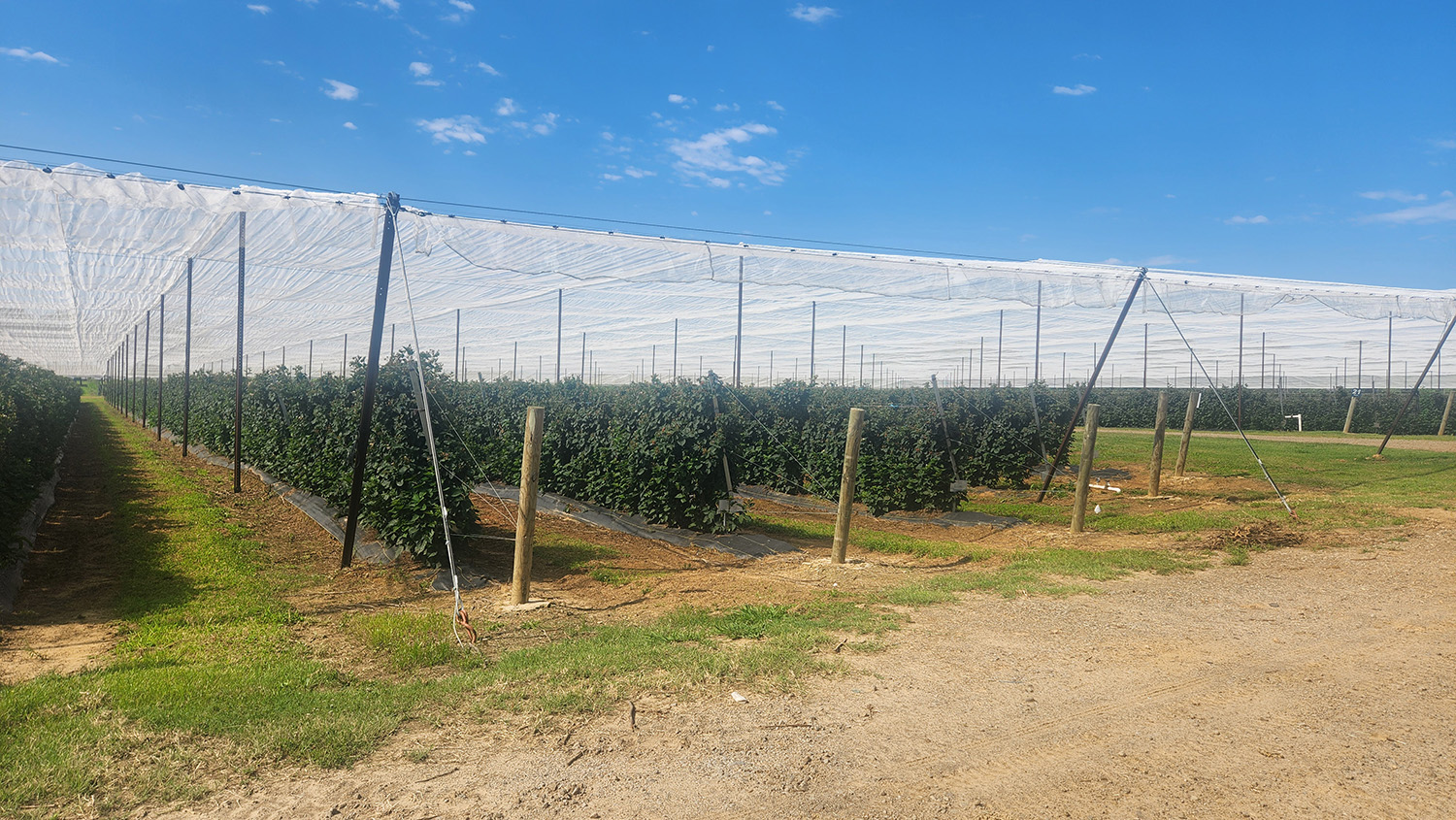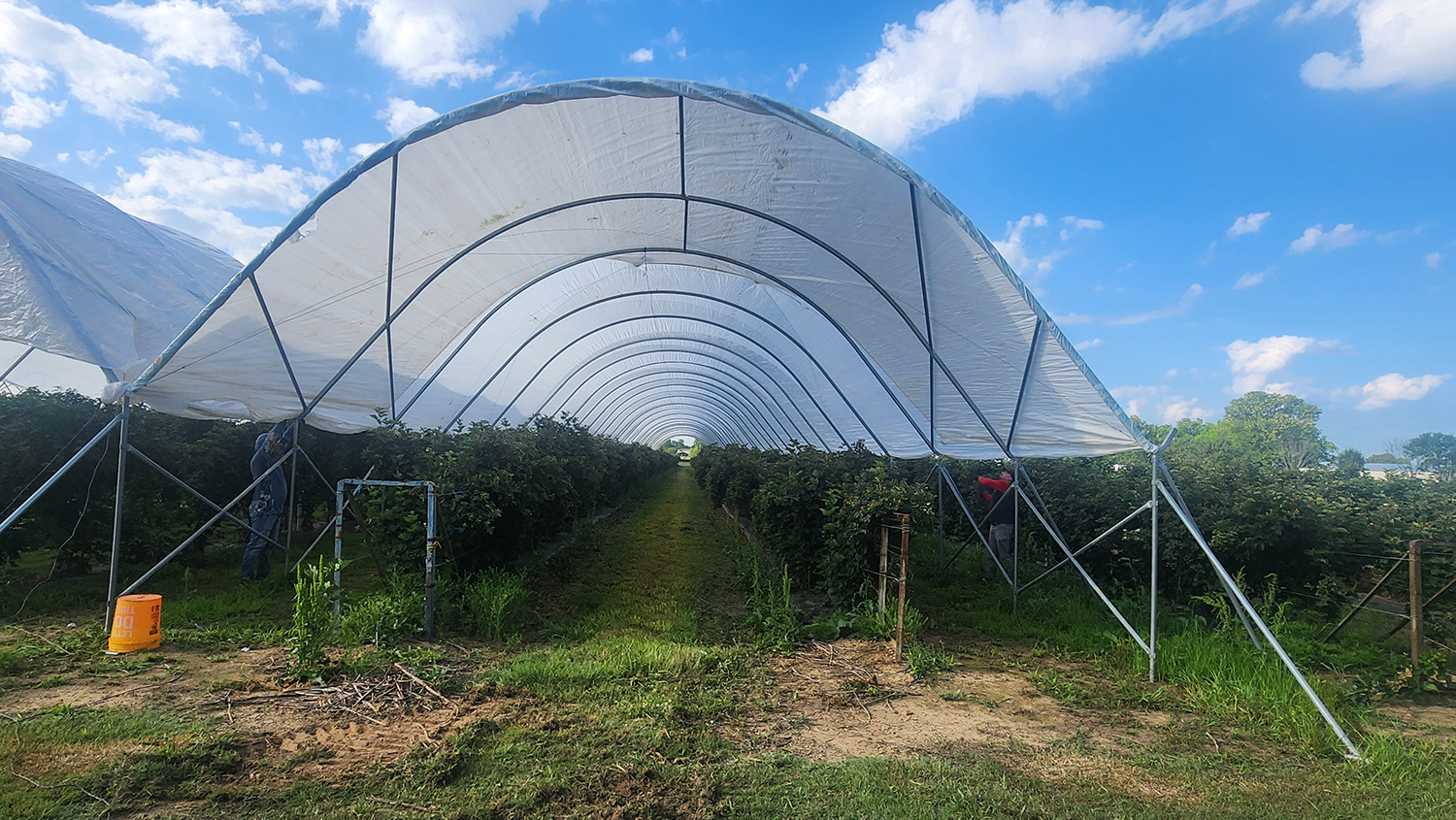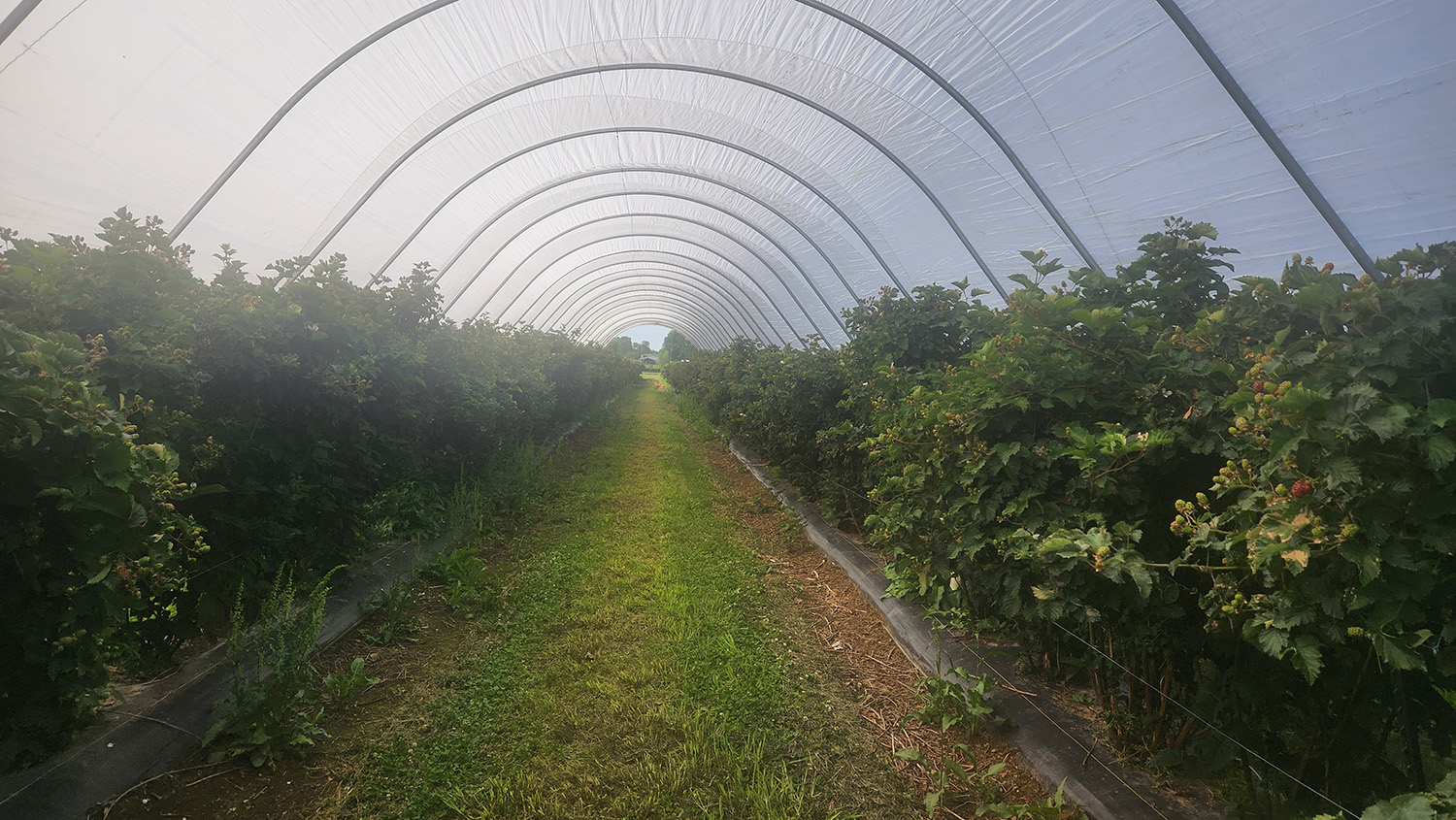Arkansas's Blackberry Discovery Farm
Research-based recommendations and trainings for specialty crops in Arkansas have previously been lacking, and horticulture crop producers frequently struggle with efficiently managing irrigation, implementing new practices, and determining best cultivars. In order to develop better practices for specialty crops, this horticulture discovery farm was established in 2023 in Judsonia, Arkansas.

Horticulture Discovery Farm Goals
- Develop cultivar and fertility recommendations for large-scale production and shipping
- Learn the effectiveness of the use of protected agriculture (i.e. low tunnels and shade cloths) as supplemental practices
- Provide specialty crop growers with an on-farm demonstration of improved practices

Project Leads
Dr. Amanda McWhirt
Horticulture Production Extension Specialist
501-671-2229
Lizzy Herrera
Program Associate- Horticulture
501-671-2392
Farm Collaborators
Arkansas Berry Company, located in Judsonia, Arkansas, is the state’s leading blackberry producer. Spanning 100 acres, the farm yields approximately one million pounds of blackberries annually. In addition to blackberries, Arkansas Berry Company cultivates blueberries, strawberries, muscadines, peonies, and sunflowers.
Founded in 1886 as part of Ritter Agribusiness, the farm expanded its focus in 2018 by acquiring Gillam Farms, enabling it to extend into specialty crops for both local and national markets. Led by Matt Wilson, farm director and president of the Arkansas Blackberry Growers Association, the farm is recognized for its innovative approach to blackberry production. This makes it an excellent candidate to become Arkansas's third horticultural discovery farm, serving as a platform to educate growers, extension agents, and agricultural professionals on sustainable management practices.
Importance of Blackberry Research
Resources
- Arkansas Discovery Farms Program
- Arkansas Blackberry School
- Rotating Cross-Arm Trellis System for Blackberry Production
- Getting Started with Commercial Blackberry Production
- 2023 Arkansas Small Fruit Management Schedule
This project is supported by the Arkansas Department of Agriculture's
Specialty Crop Block Program






